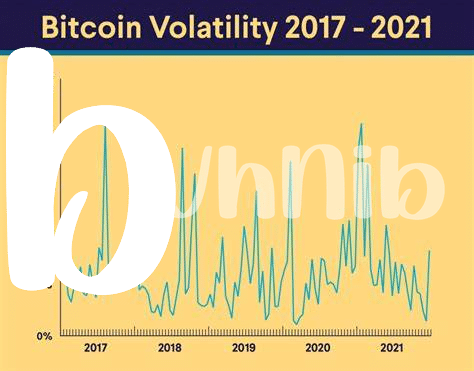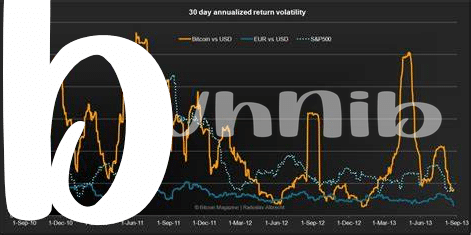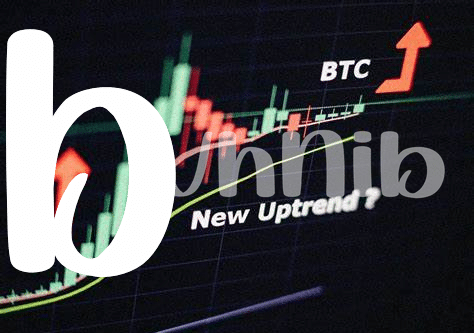🕵️♂️ Exploring the Mystery: How Bitcoin Works

Imagine a digital treasure chest, but instead of a lock and key, it uses super complex math puzzles to keep things safe – that’s kind of how Bitcoin works. It’s like magic internet money that you can send or receive from anyone, anywhere in the world, without needing a middleman like a bank. The secret sauce that makes this all possible is called blockchain technology. Imagine a super long train with lots of compartments. Each compartment (or block) stores transactions, and once a compartment is full, it gets added to the train in a way that is permanent and unchangeable. This train, visible to everyone but unalterable, ensures that no one can try to spend their Bitcoin twice or mess with other people’s transactions. It’s a clever system that uses the crowd’s power to keep things honest, rather than relying on one person or organization. Here’s a quick look at how transactions move through this system:
| Step | Process |
|---|---|
| 1 | You decide to send Bitcoin |
| 2 | The transaction is broadcast to a network of computers (miners) |
| 3 | Miners verify the transaction’s validity |
| 4 | Once verified, the transaction is combined with others to create a new block |
| 5 | This new block is then added to the existing blockchain |
| 6 | The transaction is complete, and the Bitcoin is successfully transferred |
So, while it might sound complex, at its heart, Bitcoin is just a new, techy way to think about money that doesn’t need banks to verify every transaction.
🔓 the Key Issues: Weak Points in Security
Imagine a treasure chest, but instead of a lock, it has a few weak hinges that could give way if not handled with care. That’s a bit like Bitcoin’s security scene. Despite its digital fortress, there are some chinks in the armor. At its core, Bitcoin is meant to be secure. Yet, like any treasure worth having, it attracts unwanted attention. The weaknesses stem from a few areas that, if overlooked, can turn into gaping holes. This isn’t about the technology failing on its own but more about how it’s used and the peripheral systems that support it. Missteps here can open the door to trouble.
Now, inching closer to these vulnerabilities, we find that they aren’t just technical glitches waiting to be exploited by those with enough know-how. Some issues are surprisingly simple yet profound. For instance, how users manage and store their digital keys—think of them as the most sophisticated passwords you’ve ever had—can make or break their security. If these keys are lost or stolen, accessing your Bitcoin stash becomes akin to finding a needle in a digital haystack. It’s these human elements that often go overlooked, yet they play a crucial role in the overall safety of participating in the Bitcoin ecosystem. For those navigating the volatile waters of Bitcoin investment, understanding these security pitfalls is essential. A good starting point for bolstering your defenses is exploring cold storage options, a method considered to be the vault of Bitcoin security. To dive deeper into safeguarding your digital treasure, a visit to https://wikicrypto.news/navigating-the-bitcoin-wave-investment-strategies-for-entrepreneurs could shine a light on some effective strategies.
🐛 Bug Hunt: Common Vulnerabilities in the System

Think of Bitcoin like a digital treasure chest, but just like any treasure chest, it has its weaknesses where bugs can creep in. These bugs aren’t creepy crawlies but flaws in the system that can leave it open to mischief. Picture a lock not clicking shut properly or a tiny hole in the chest’s side that lets water in. In the Bitcoin world, these could be glitches in the software that people use to send or receive bitcoins, or maybe the tools that keep the whole Bitcoin universe ticking could have a hiccup. Even though the community is always on the lookout, squashing these bugs as they pop up, it’s a bit like plugging leaks in a boat. The key takeaway is to stay aware and keep our digital treasure chest as secure as possible to enjoy the adventure that is Bitcoin.
🏴☠️ Pirates Ahoy: the Threat of Hacking Attacks

Imagine navigating the high seas with a treasure map in hand, leading to a chest full of gold. This is similar to the online world of Bitcoin, where digital treasures attract not just adventurers but also modern-day pirates. These pirates, or hackers, are always on the lookout to exploit any weakness, turning the exciting journey of owning and trading Bitcoin into a perilous quest. The attacks are sophisticated and varied, ranging from phishing attempts that bait users into revealing their precious private keys, to more direct assaults on the digital wallets and exchanges where Bitcoin is stored. Each breach shakes the trust in this digital currency, reminding users that their treasure is only as safe as the security measures guarding it.
For those navigating these treacherous waters, staying informed and vigilant is key. Knowing the types of hacking attacks and understanding how to protect against them can make all the difference between safeguarding your digital gold and losing it to the depths of the internet. This makes learning about bitcoin security practices security concerns not just important, but essential for anyone involved in this digital voyage. It’s like having a detailed map that marks where the pirates lurk and the best routes to take to avoid them, ensuring that your treasure remains yours and yours alone.
💾 Backup Blunders: the Dangers of Losing Keys
Imagine losing the only key to a treasure chest. That’s exactly what happens when you lose your Bitcoin keys! These keys are the magic passwords that unlock your digital treasure chest, aka your Bitcoin wallet. However, unlike a lost key that might be found under a sofa cushion, a lost Bitcoin key is often gone forever. This means you can no longer access your digital coins. It’s like having a pile of gold that you can’t touch! This is why making sure you keep your keys safe and have backups is super important.
Here’s a simple breakdown of how often people run into this trouble:
| Problem | How Often It Happens |
|---|---|
| Losing Keys | 🤦♂️ Way more than you’d think! |
| Forgetting Passwords | 🤷♀️ All the time! |
But backing up these keys brings its own set of challenges. If your backup is on a piece of paper, it could easily get lost, damaged, or even accidentally thrown away. And if you store it on a computer or online, hackers are like pirates on the lookout to steal your treasure. It’s a tricky situation that requires a careful balance between keeping it safe and accessible to you—and only you.
🌐 Network Navigators: Risks in Blockchain Technology

When we dive into the world of digital treasures, we often forget the murky waters we’re navigating. The blockchain, a kind of digital ledger that records all transactions across a network, is the backbone of technologies like Bitcoin. Yet, this innovative technology isn’t without its perils. As we sail these digital seas, we encounter the risk of “51% attacks” where individuals or groups gain control of the majority of the network’s mining power, potentially allowing them to manipulate transaction records and double-spend coins. Furthermore, the decentralized nature of blockchain, while offering privacy and security, also means there’s no central authority to turn to if things go south.
Venturing further into the blockchain labyrinth unveils the complexities of smart contracts. These self-executing contracts with the terms of the agreement directly written into lines of code are revolutionary, yet they’re not immune to vulnerabilities. Missteps in their design or flaws in the blockchain can lead to significant security breaches, risking both financial and data losses. For those looking to dive deeper into safeguarding their digital assets, especially small businesses exploring Bitcoin, understanding the intertwining of bitcoin and smart contracts security concerns is crucial. As we navigate this uncharted territory, the blend of excitement and caution defines our journey, reminding us of the importance of vigilance in the ever-evolving landscape of blockchain technology.
